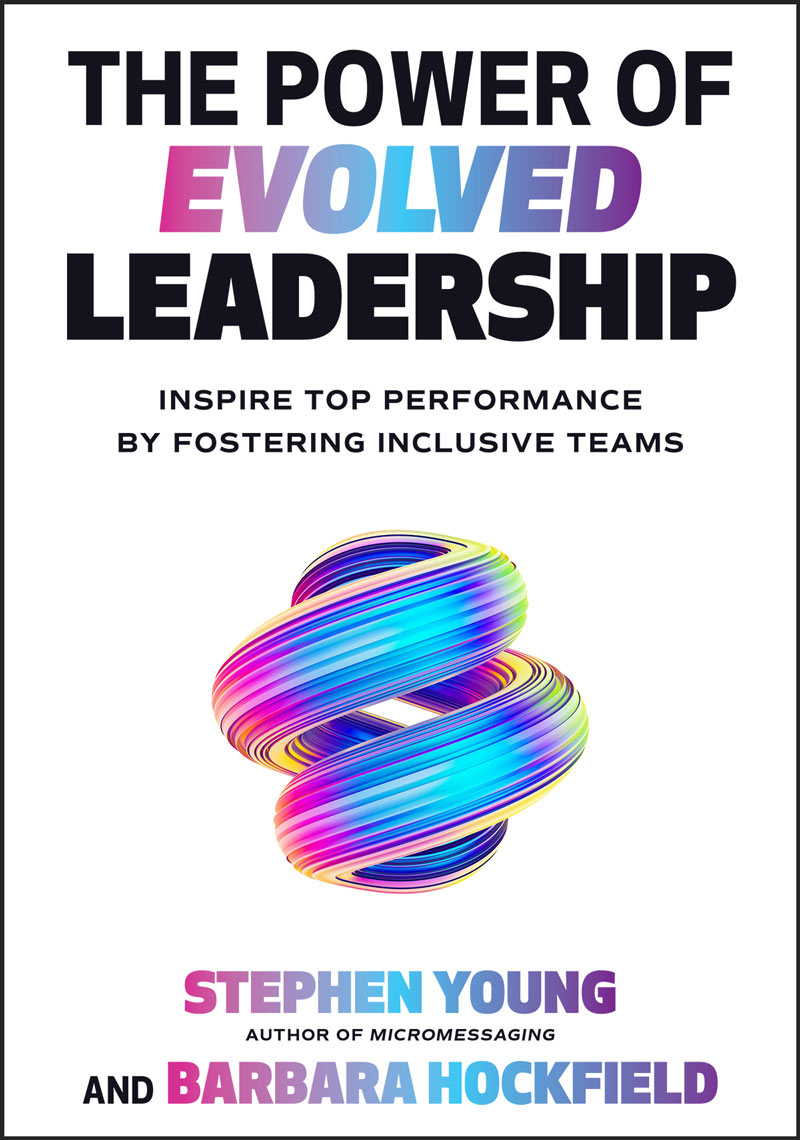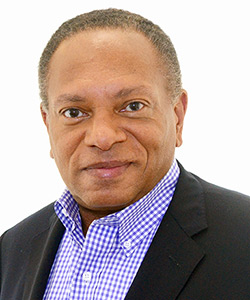By Stephen Young

Many thanks to Profiles in Diversity Journal for asking for perspectives on my latest book, The Power of Evolved Leadership.
At its heart, the book takes a scalpel to many of the dusty cliches and aphorisms that have guided leadership practices for decades.
In part, the book suggests redirecting the use of ill-defined metaphors and common practices and replacing them with clear and actionable applications.
For example, the use of rote expressions and directives such as, “Think outside the box” should be jettisoned from our workplace nomenclature.
During my seminars, when I hear people use that expression, I ask them if they could please, “Show me the box and describe what it really means to think outside of it.”
Is the message simply suggesting to do things differently? If so, is just doing it differently all we need to do to accomplish its mission? As it exists in a vacuum, the aphorism carries no meaningful value. Nevertheless, it is blindly accepted albeit with its unclear destination.
We must reexamine many of our ritualistic habits and replace them with well-defined practices for evolved leadership.
Logic, clarity and reason must become the epicenter of our leadership process. We cannot allow habits and emotion to cloud making the best decisions. This connects to another key point in the book, “Confirmation Bias.”
Confirmation bias often interferes with the process of getting to the best solutions. When we hold a belief or position on how something should be managed, the process of searching for confirmation of that belief unwittingly overrides any evidence that might prove it false.
“This book brilliantly illustrates the transition from transactional management to transformative leadership emphasizing the significance of evolving behaviors for today’s dynamic workplace.”
– Charles Good, President, Institute of Management Studies
“The power of evolved leadership is for every leader who dreams to enable others to perform to their full potential.” Steve’s model provides a clear roadmap to help leaders hone their skills toward leadership excellence. It will certainly transform leaders but more importantly, drive commitment, engagement, loyalty and a desire to succeed among teams. There can hardly be a more crucial and selfless calling on leaders today.”
– William B. Dodero, General Counsel, Senior Vice President, Bayer
Our ego tends to insert, and assert, itself becoming an accelerant that fuels our confirmation bias. It prevents us from seeing things through an evolved lens. Interestingly, our egos, like our brain, are both powerful yet fragile. It can cause us to place more energy on saving face than seeking truth.
The book shines a light on this precarious paradox.
The number one obstacle inhibiting leadership evolution is EGO.
Feelings often fog facts. Good decision-making must focus the lens in the direction of data and move it to the forefront of clear vision and our actions.
Another universally accepted staple is the term, “collaboration”—often heralded as a cornerstone of an inclusive corporate culture.
But hidden beneath its shiny surface, ‘collaboration’ can be a harbinger for destructive egos. The very structure of a collaborative process requires that groups come together to share perspectives and ideas.
“Steve Young is a foremost expert on leadership. The powerful content of his seminars consistently generates audience response one does not normally experience. His sessions at Oracle still hold the record of having the highest ratings on leadership and inclusion…I wish this had been available years ago! As with his live presentations, the book pulls you in, holds your attention, and continues to inspire to the very end.”
– Gerry Borja, Senior Diversity & Inclusion Manager, Oracle
But groups are made up of individuals. Unwittingly, the act of collaboration can awaken the Kraken of competitiveness. The collaborative mission may have been for the group to develop the best ideas, but individuals also have personal career aspirations. Instinctively, people can be driven to make it known that their contributions have greater value than others.
For this reason, we are often encouraged to suppress that competitive desire, be more humble, and check our egos at the door. The paradox is, too much humility can make you invisible. What an interesting balancing act. Failing to effectively self-promote can push you into the quicksand of lost opportunity.
Failing to effectively self-promote can push you into the quicksand of lost opportunity.
This book offers perspective on the ways to balance these conflicting pursuits. Its mission is to build evolved leadership skills using a wide variety of actionable new channels. Some of the concepts introduced include:
Connective Language
The art of deciphering the unspoken. There is no correlation between being a good communicator and being effective at building connections.
Person Versus Persona
The value and purpose of code switching. Evolved leaders must have the agility to access each audience, or individual, with whom they interact and adapt their persona, while never being untrue to their core values.
PMVV – Performance, Motivation, Vision, Values
The four pillars of evolved leadership.
Deontological vs Teleological Business Ethics
Distinguishing the difference between what is right for you, what is right for the business, and what is ethically right.
Humility Versus Productive Advocacy
The Congeniality Winner never gets the crown. No matter how talented or skilled you are, you’ll ultimately be the tree in the forest that no one hears if you don’t make others aware of the strengths, skills, and value you bring to the business.
Axiological Skills for Evolved Leadership
Turning the gears doesn’t necessarily move you forward. Actions and behaviors must be metered against their discernable value.
The Power of Evolved Leadership also incorporates personal interviews with some of today’s top corporate leaders who share their perspectives on this topic. It provides clear, actionable advice, insights and tools for becoming an evolved leader who inspires and motivates the performance of others and leads them into the future.
Explore these new concepts and learn how to immediately apply them in all your future interactions.
“Working for twenty-seven different leaders in my career, and my own leadership journey, have prompted me to reflect on what attributes differentiate great leadership skills from bad ones. Stephen Young’s new book, The Power of Evolved Leadership, explores an insightful and progressive model of leadership through his novel lens of PMV leadership, which covers performance, motivation, vision, and values. Stephen shares, in his captivating style, his wisdom and thought-provoking insights on evolved leadership, based on real and actionable corporate experiences.”
– Bernard Lauwers, Finance Director, International Monetary Fund

Stephen Young
Stephen Young is the Senior Partner of Insight Education Systems, a management consulting firm specializing in leadership and organizational development services. As a recognized leader and foremost expert in this field, Mr. Young frequently consults with senior executives and management teams of Fortune 500 companies.






